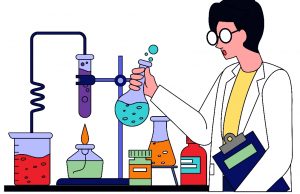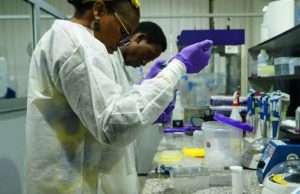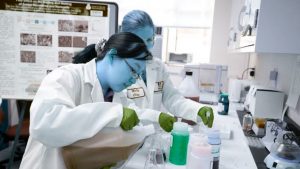Biochemistry or Microbiology, Which Is Better To Study: Biochemistry and microbiology are two courses which people usually experience the state of dilemma as to which to study over the other. Both courses are co-rated and somewhat intertwined especially in their biological focus which involves the analysis of life. Studying biochemistry, you would see that you would be required to borrow some courses from the field of microbiology in fulfillment of biochemistry academic program. This is also applicable to the study of microbiology.
In fact, biochemistry and microbiology share some inside course together at some point. To this effect, the state of dilemma may ensue as to which is better to study. Firstly, we shall begin by discussing the field of the two concepts, their various purposes, scope, impact, relevance and their achievements thus far in relation to the existence of life.
Recommended: Differences between totalitarianism and fascism
Meaning of Biochemistry
Biochemistry is the chemistry of compounds that occur in living organisms, and the processes that occur in their metabolism and catabolism. Simply put; biochemistry is the study of the chemical characteristics of a particular living organism.

In the study of biochemistry, chemistry is applied to the study of biological processes. Biochemistry is both a life science and a chemical science; just like the name suggests a combination of two different but like concepts. Biochemistry studies the chemistry of living organisms and seeks to understand the molecular basis for the changes that occurs in living cells. Since biochemistry studies chemical characteristics of living organisms, the journey of studying these characteristics is also a journey to establishing solutions health complexities of life.
Biochemists are interested in mechanisms of functions, cellular multiplication and differentiation, and interaction within and between cells and organs, and the chemical bases of diseases history. The biochemist seeks to determine the function of specific molecules, hormone function in such processes, and significantly, the regulation of chemical reactions in living cells of organisms.
Biochemistry is the foundation of understanding all biological processes.
Also see: Best science courses to study in the university
This field of study has provided verifiable explanations to the cause of many diseases in humans, plants and animals. The field of biochemistry can as well suggest ways by which diseases may be prevented, treated, managed or cured. It is also a foundation of the merging distinct field such as molecular genetics and bioengineering.
Biochemistry has many subspecialties such as neurochemistry, bioorganic chemistry, clinical biochemistry, physical biochemistry, molecular genetics, biochemical pharmacology, immunochemistry, etc.
Biochemistry is vital to both modern agriculture as well as medicine. Biochemistry contributes and enhances the human life expectancy by its design and testing of medication and diagnostic tools. The primary interest of biochemistry is centered on the understanding of the existence of life and making researches on how best to sustain life existence.
Also see: Famous Scientists in the World and their inventions
Meaning of Microbiology
On the other hand, microbiology is the branch of biology that deals with microorganisms, particularly their effect on man and other living organisms. Microorganisms are organism that is too small to be seen by the unaided eye, especially a single-celled organism such as bacterium.

Microbiology is the study of microbes and how they influence life. This study of microbes informs one about their effects in food which includes spoilage, fermentation, decay, food poisoning and formation of toxins. It studies the development of diseases and disease control, and also concerns itself with the effects and control of situations like bio wars.
Also see: Top 10 Best commercial courses to study in the university
The study of microbiology has been correctly described as the study of a world that is invisible to naked eyes but has a great impact on human life and other existences. Those microorganisms which microbiology tends to study may be unicellular, multicellular or accellular. This includes bacteria, archea, algae, protozoa, fungi, viruses, etc, which are collectively known as microbes or microorganisms. Subspecialties of microbiology include virology, bacteriology, mycology and parasitology.

Recommended: Differences between micro and macro economics
Biochemistry vs Microbiology, Which Is Better in Salary and Opportunities
In ascertaining which is better between biochemistry and microbiology, factors such as interest and opportunities must first be evaluated and considered. In considering those factors, their impact and relevance to life and to the society must be evaluated as well. First, it must be noted that all life science subjects are complementary to each other. Biochemistry and microbiology are both life sciences.
For microbiology, its impact on the industrial and commercial opportunities are considerable such as food manufacturing and testing, public health, epidemiology, vaccine development, infectious disease research, environmental microbiology, pharmaceutical research, molecular genetics, water testing and treatment, etc. both microbiology and biochemistry have many related impact and topics of discourse and permeation.

Microbiology tend to have opportunities in pharmaceuticals, food industry, agriculture and medical fields like pathology; same also apples to biochemistry. The question for determination now is which has more opportunities, relevance and impact?
As earlier been stated, biochemistry and microbiology are both life sciences and as such, they are complementary to each other. They are both driven by the same purpose, and they both permeate through related areas of discipline. Their relevance also seeks to achieve similar purposes, although the means through which they achieve the life purpose differs. This establishes the fact that both fields shares similar interest. Biochemistry however, is more of a foundation upon which life sciences are established.

Recommended: Best Countries To Study and work as a doctor
The field of biochemistry cuts across the major areas of: medicine, environmental, industrial, clinical, and many more. Microbiology cuts across same fields as well, but certainly not to the same extent as biochemistry. Life can still exist even in the absence of microbiology being discovered. After all, biochemistry also studies microbiological components, though certainly not to the same extent as microbiology, which is as a result of the need for specialization. Biochemistry seeks to study the basis of life itself starting from the components of living things, biochemical reactions which go on in there and how they affect life, and practically verified solutions to the maintenance and sustenance of life.
Microbiology on the other hand studies the outer sketch of life existence. This means that microbiology does not study the integral part of life itself, rather it studies microorganisms and determine how they affect life. Microbiology are clearly about the existence of microorganisms which are not integral aspect of life but the activities of those microbes can have an effect when they come in contact with an organism. The question is, how regular do microbes come in contact with life? Of course, quite regular, but another question is, can they be avoided? The answer seems to be yes.

Also see: Countries where education is free for citizens in the world
The metabolisms that go on in human body which is studied by biochemistry cannot be avoided or be put to a halt. Even when these microbes find their way into living organisms, biochemistry also studies and provides solutions to their treatment and cure, by the necessary interrelation of the both fields. It could then be said that when it comes to impact and relevance, biochemistry tend to explore the more.
The relevance of biochemistry seems deeper in pharmaceutical industries since they can determine drug composition and structure as they would interact with the body of living organisms, which extends to determining possible toxicity. When it comes to opportunities, biochemistry and microbiology shares on a similar basis, but the opportunities of microbiology may dominate particularly in food manufacturing industries, although it seems that biochemistry would have more opportunity generally.
Recommended: How to become a successful entrepreneur
Conclusion
Even though biochemistry is better to be studied than microbiology based on content analysis of this article, personal interest of individuals must be put at the foremost. This article does not in any way undermine the relevance of microbiology to life. It was quite difficult to have arrived at this conclusion, but based on the outstanding premises of the relevance of biochemistry, it seems unbiased and genuine to hold biochemistry as better to be studies than microbiology.

Edeh Samuel Chukwuemeka, ACMC, is a lawyer and a certified mediator/conciliator in Nigeria. He is also a developer with knowledge in various programming languages. Samuel is determined to leverage his skills in technology, SEO, and legal practice to revolutionize the legal profession worldwide by creating web and mobile applications that simplify legal research. Sam is also passionate about educating and providing valuable information to people.